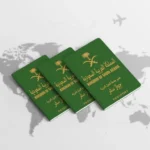Introduction
In this digital era, obtaining a visa has become a streamlined process, especially for travelers to India. UK and Portuguese citizens can now enjoy the convenience of acquiring their Indian visas online. This article will walk you through the steps, requirements, and benefits of obtaining an Indian eVisa.
Understanding the Indian E-Visa
The Indian eVisa system revolutionized the traditional visa application process. It allows eligible travelers to apply for a visa online, eliminating the need for physical visits to embassies or consulates.
1. Types of Indian E-Visas
1.1 Tourist E-Visa
For those exploring the rich cultural tapestry of India, the Tourist E-Visa is the most suitable option. It grants visitors the opportunity to tour the country for leisure, visiting historical sites, experiencing diverse cultures, and enjoying the vibrant festivals. INDIAN VISA FOR PORTUGUESE CITIZENS
1.2 Business E-Visa
Entrepreneurs and business travelers will find the Business E-Visa tailored to their needs. This visa category allows individuals to engage in business-related activities such as meetings, conferences, and exploratory business ventures within India.
2. Eligibility Criteria
2.1 Passport Requirements
UK and Portuguese citizens must ensure their passports meet specific criteria to apply for an Indian eVisa. The passport should be valid for at least six months beyond the date of entry into India and should have at least two blank pages for stamping.
2.2 Validity Period
Understanding the validity period of your eVisa is crucial for planning your trip effectively. The Indian eVisa is typically valid for 60 days from the date of arrival. During this period, travelers can enter India and stay for a maximum of 90 days.
3. The Application Process
3.1 Online Application Form
The online application form is the gateway to your Indian adventure. It’s imperative to fill it out accurately and truthfully. The form will ask for personal information, travel details, passport information, and other relevant data. Double-check all entries to avoid any delays in processing.
3.2 Document Upload
Accompanying the application form, you’ll need to upload certain documents. These usually include a scanned copy of your passport’s biographical page and a passport-sized photograph. Make sure the documents meet the specified requirements to ensure a smooth application process.
4. Visa Fee and Payment
4.1 Fee Structure
A breakdown of the visa fees for UK and Portuguese citizens is essential information for any prospective traveler. The fee structure varies depending on the type of visa and nationality. It’s advisable to check the latest fee schedule on the official Indian government website.
4.2 Payment Methods
Exploring the various payment options available for visa fees ensures a hassle-free transaction. Accepted methods typically include credit/debit cards and online payment platforms. Be sure to use secure and trusted payment gateways.
5. Processing Time
Understanding the average processing time for an Indian eVisa is crucial for planning your trip. While the standard processing time is around 72 hours, it’s advisable to apply well in advance of your intended travel date to account for any unforeseen delays.
6. Arrival in India
6.1 Biometric Verification
Upon arrival in India, travelers with an eVisa are required to undergo biometric verification. This involves fingerprinting and photographing for security purposes. The process is typically swift and conducted at dedicated eVisa counters.
6.2 Duration of Stay
Know the duration you’re allowed to stay in India with an eVisa. The maximum stay permitted on a tourist eVisa is 90 consecutive days. It’s important to adhere to this limit to avoid any immigration-related complications.
7. Extension and Renewal
7.1 Extending Your Stay
In certain exceptional circumstances, you may need to extend your stay in India. This can be a complex process, often requiring approval from the relevant authorities. It’s recommended to initiate this process well in advance of your visa’s expiration date. INDIAN EVISA FOR UK CITIZENS
7.2 Renewal Process
If you plan on extending your visit or returning to India in the future, understanding the process of renewing your Indian eVisa is crucial. This typically involves submitting a fresh application and paying the applicable fees.
Frequently Asked Questions
- Can I apply for an Indian eVisa if I hold dual citizenship?
Yes, as long as one of the citizenships is either UK or Portuguese. - What is the maximum duration of stay allowed on a tourist eVisa?
A tourist eVisa allows a maximum stay of 90 consecutive days. - Can I apply for a business eVisa if I am attending a conference in India?
Yes, the Business eVisa covers conference attendance purposes. - Is it possible to extend a tourist eVisa beyond the initial 90 days?
No, a tourist eVisa is not extendable. - How long does the processing of an Indian eVisa usually take?
On average, the processing time for an Indian eVisa is approximately 72 hours
Conclusion
Embarking on a journey to India has never been more accessible. With the Indian eVisa system, UK and Portuguese citizens can explore the incredible diversity and cultural richness of this subcontinent with ease.










